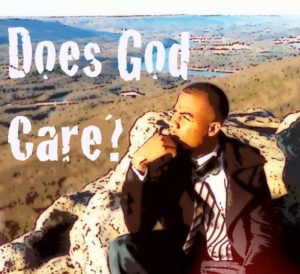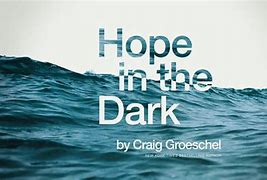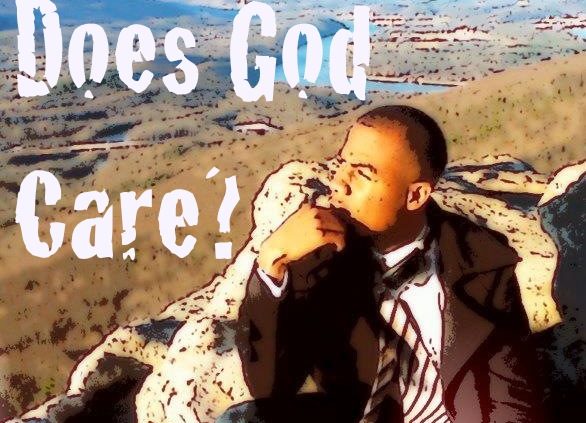When It Seems God Doesn’t Care
When It Seems That God Doesn’t Care
In the last post we saw that people need a sense of security, that God is in control, during a pandemic. But what about when it seems that God doesn’t care about my pain? Beyond security, however, people need a sense that God cares about them, that he is tuned in to their pain and suffering. When it seems that God doesn’t care people begin to despair.
In the Old Testament there is a small little prophecy attributed to Habakkuk. We don’t know much about  Habakkuk. He may have been a priest in addition to being a prophet, or he may have been a professional prophet. During his life he saw a growing uncertainty about God’s control. The Northern Kingdom, Israel, had been conquered and dispersed as a punishment for there disobedience to the covenant, and now foreign armies were coming against Judah as well. In addition, Habbakkuk saw the growth of injustice in the country, and moral decline was obvious.
Habakkuk. He may have been a priest in addition to being a prophet, or he may have been a professional prophet. During his life he saw a growing uncertainty about God’s control. The Northern Kingdom, Israel, had been conquered and dispersed as a punishment for there disobedience to the covenant, and now foreign armies were coming against Judah as well. In addition, Habbakkuk saw the growth of injustice in the country, and moral decline was obvious.
Questions for God
So, he has some questions for God.
How long, Lord, must I call for help, but you do not listen? Or cry out to you, “Violence!” but you do not save? Why do you make me look at injustice? Why do you tolerate wrongdoing? Destruction and violence are before me; there is strife, and conflict abounds. Therefore the law is paralyzed, and justice never prevails. The wicked hem in the righteous, so that justice is perverted. (Habakkuk 1:2-4)
In other words, it is one of those times when it seems that God doesn’t care about what is going on.
When It Seems That God Doesn’t Care
 This is a common reaction when disaster strikes. In his book, Hope in the Dark, Craig Groeschel shares the story of a pastor who had served faithfully for over two decades. Then one day, he came home to a great shock: his wife told him that she didn’t want to be married to him anymore. She had connected with an old flame on social media, and decided that this was what she wanted for her future.
This is a common reaction when disaster strikes. In his book, Hope in the Dark, Craig Groeschel shares the story of a pastor who had served faithfully for over two decades. Then one day, he came home to a great shock: his wife told him that she didn’t want to be married to him anymore. She had connected with an old flame on social media, and decided that this was what she wanted for her future.
Then, the disaster deepened when the elders of his church decided that, with his marriage disintegrating, he wasn’t fit to lead the church anymore either. And so, he lost his job, too. This is what he said to Craig Groeschel:
I know God doesn’t owe me anything, but now I have nothing. After serving him my entire adult life, how could he allow me to end up divorced and unemployed? It’s just…just so unfair!” (p. 40-41)
That’s the modern-day equivalent of Hosea’s cry. Doesn’t he care?
I’ve heard similar things during this pandemic. “Where is God? Doesn’t he care?” This cry comes from people who have lost their jobs, their businesses, their health, and people that they love.
Preaching that God cares in a Pandemic
One of the things we need to communicate during a pandemic is that God cares about his people. I love the image that the Psalmist creates in Psalm 56:8. He indicates that God is aware, and that he cares:

You have kept count of my tossings;
put my tears in your bottle.
Are they not in your book?
What a picture! God gathers our tears, he saves them, he knows when we are tossing and turning. He knows and He cares! God keeps a record of our tears! He does this so that our blessing eventually is proportionate to our pain.
I think of an extended prayer time I had with a woman who was still living out the abuse of her father into mid- life. A couple of us brought her back in time to one instance when she heard her father coming to her bedroom. She was shaking and crying with the memory. I then asked her the big question, “Where is Jesus?” We had talked about the promise that God never leaves or forsakes us. So, where is Jesus in the moment of hurt and loss of innocence. With her eyes closed she suddenly said, “There he is! He’s right there in the corner!” And then I asked, “What is he doing or saying?” She began weeping, and between sobs said, “He’s crying for me!”
life. A couple of us brought her back in time to one instance when she heard her father coming to her bedroom. She was shaking and crying with the memory. I then asked her the big question, “Where is Jesus?” We had talked about the promise that God never leaves or forsakes us. So, where is Jesus in the moment of hurt and loss of innocence. With her eyes closed she suddenly said, “There he is! He’s right there in the corner!” And then I asked, “What is he doing or saying?” She began weeping, and between sobs said, “He’s crying for me!”
A Theology of Pain
Of course, you will still need to address in a message the question, “Why does God let bad things happen to good
people.” That will be the topic of the next post. When people feel that God knows and that he cares, it helps to bear the pain.



